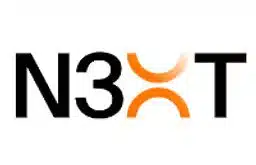The introduction this month of same-day ACH debits will cause some headaches. But all things considered, same-day processing might well end up slowing the momentum of real-time alternatives, says Sarah Grotta.
With the supposition that faster is better when it comes to money, the automated clearing house network is entering the next phase of its plan to move transactions from one bank account to another within a single business day. The National Automated Clearing House Association (NACHA) is requiring all receiving depository financial institutions (RDFIs) to have two additional time periods during the day (or windows as they are called in the parlance of ACH) for financial institutions to exchange these transaction files.
The additional windows allow the processing flexibility necessary for originating depository financial institutions (ODFIs) to send an ACH transaction using the current day’s date in the NACHA-formatted file and be sure the transaction is received within the same day. On the surface, it sounds rather simple, but the implications of same-day ACH credits and debits may be far reaching.
The transition to same-day ACH (SDA) has been in process for well over a year. The first phase of implementation was executed in September 2016. In this phase, all financial institutions that provide ACH services (and just about all do) were required to accept ACH credits having the current day’s date (or a prior day’s date) and post them to the appropriate account. Financial institutions expressed concern about staffing needed to manage the additional processing windows and about the potential for fraudulent transactions. With the compressed time frames, RDFIs feared they would lack time to research transactions identified as suspicious. But the NACHA deadline to accept ACH credits came and went without any significant issues.
Indeed, end-user clients appreciated the opportunity to send SDA credits for emergency, last-minute transactions. After all, the alternative prior to SDA was a relatively expensive wire transfer. So, with this meaningful price incentive, the volume of SDA credits has climbed in the last year, particularly with expedited payroll deposits. Fraud directly attributable to same-day ACH has been negligible. The industry is comfortable that the tools in place are catching questionable transactions, even with the shortened time to complete transactions.
But credit transactions generate fewer return transactions and fewer fraud issues than do debit transactions. The phased approach to SDA started with credits for just this reason, giving financial institutions a year’s time to become acclimated and to fine-tune operations and risk procedures in advance of SDA debits. Now, as of Sept. 15, SDA debits must also be processed by RDFIs within the same day. While accepting SDA is mandatory, originating SDA debits and credits is completely optional. But most financial institutions are very interested in offering origination services because they recognize that doing so is emerging as a competitive imperative.
SDA debits will be more challenging for RDFIs than SDA credits because debits generate more return activity and more fraud. Financial institutions are spending resources to improve their fraud-management tools through more advanced data analytics so they can react more quickly and autonomously to suspicious activity. Time will be too limited for human staff to manually review SDA transactions.
Financial institutions can also look to well-established tools for their customers to integrate so they can participate in identifying suspicious activity for SDA transactions. Users need to be encouraged to adopt tools such as transaction blocks and positive pay. However, those tools should be considered an addition to enhanced internal risk tools. Realistically, if financial institutions are stretched for time to review suspicious activity, business clients likewise won’t always be able to react in a timely manner to debit transactions in process.
Despite the risks of SDA debits, it is anticipated that they too will be well-received. One-time and recurring bill-payment transactions are expected to be the most active use cases as same-day debits become available.
Considering the broader picture of transactions available domestically, SDA will also hold its own against other forms of payments where speed is a featured capability. Although same-day ACH does not live up to all the guidelines the Federal Reserve’s Faster Payments Task Force has published for a U.S. real-time payments (RTP) platform, SDA has some advantages:
– SDA has a first-mover advantage over real-time payments in the U.S. for speedier transactions;
– Integrating SDA doesn’t require nearly the effort or expense needed to integrate to a new RTP system. That holds true for financial institutions as well as business clients that may have a variety of accounting-software packages currently configured to manage ACH transactions;
– SDA is about as ubiquitous a payment type as exists in the U.S. Nearly everyone in the United States has an account that can receive or be debited by an ACH transaction, including prepaid card solutions.
– The regulatory framework for SDA is known, whereas RTP is still being shaped.
– The price to business end users for same day ACH transactions is currently less than the anticipated price point for real-time payment transactions.
– ACH offers both credit and debit transactions, while RTP is a credit-only solution with a request for payment option.
Make no mistake, SDA and RTP are not the same thing. But where speed, price, and ubiquity are critical, SDA may be the preferred solution for domestic transactions. A same-day ACH transaction may just be fast enough for many transaction use cases. In fact, an unintended consequence of the successful launch of SDA may be to slow the adoption of real-time payments in the United States.
—Sarah Grotta is director, debit advisory services at Mercator Advisory Group, Maynard, Mass.





